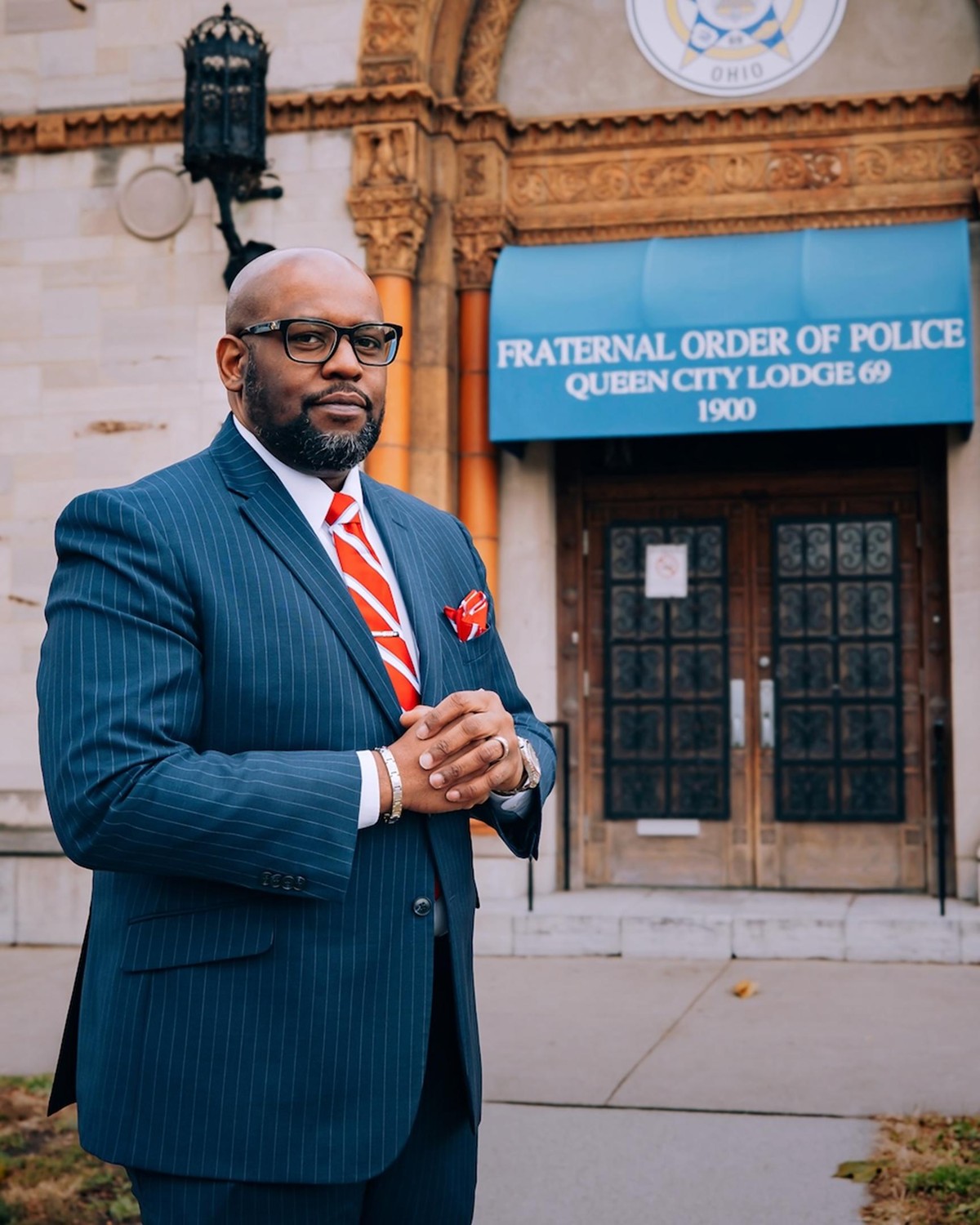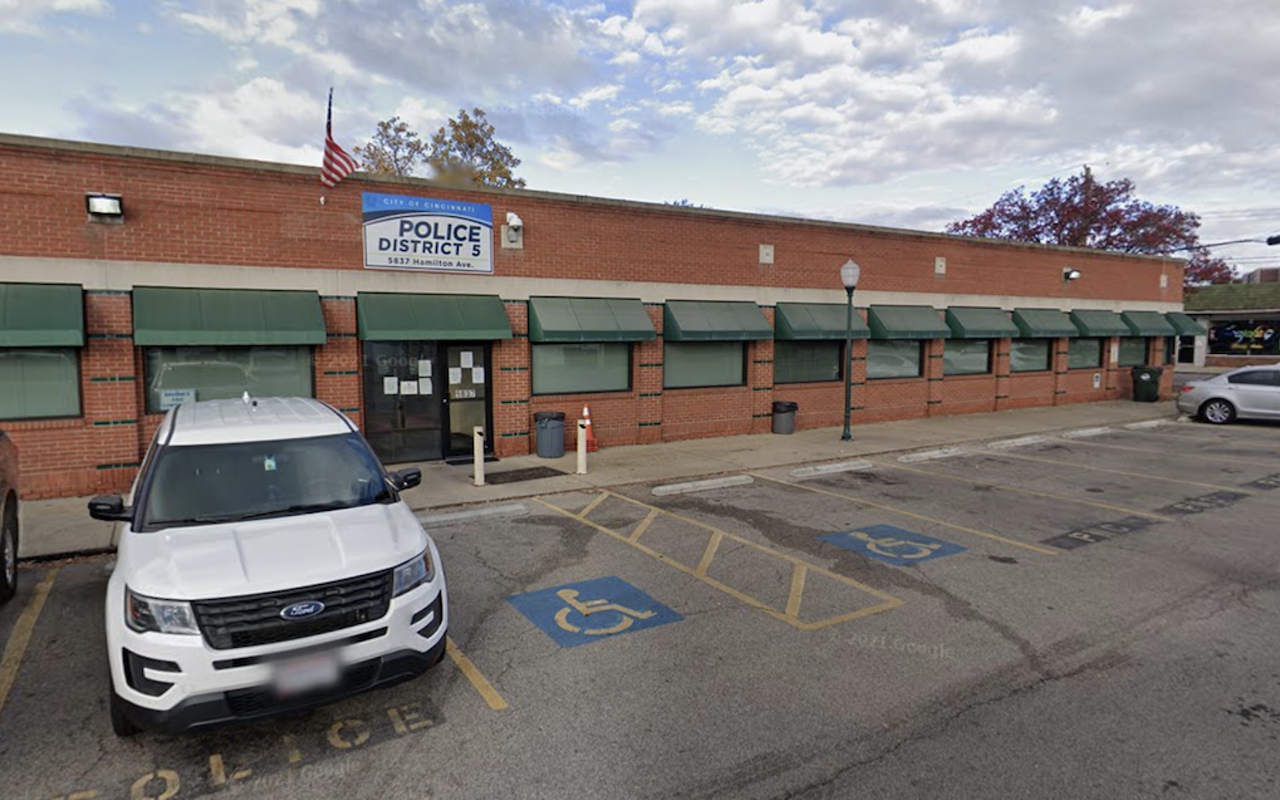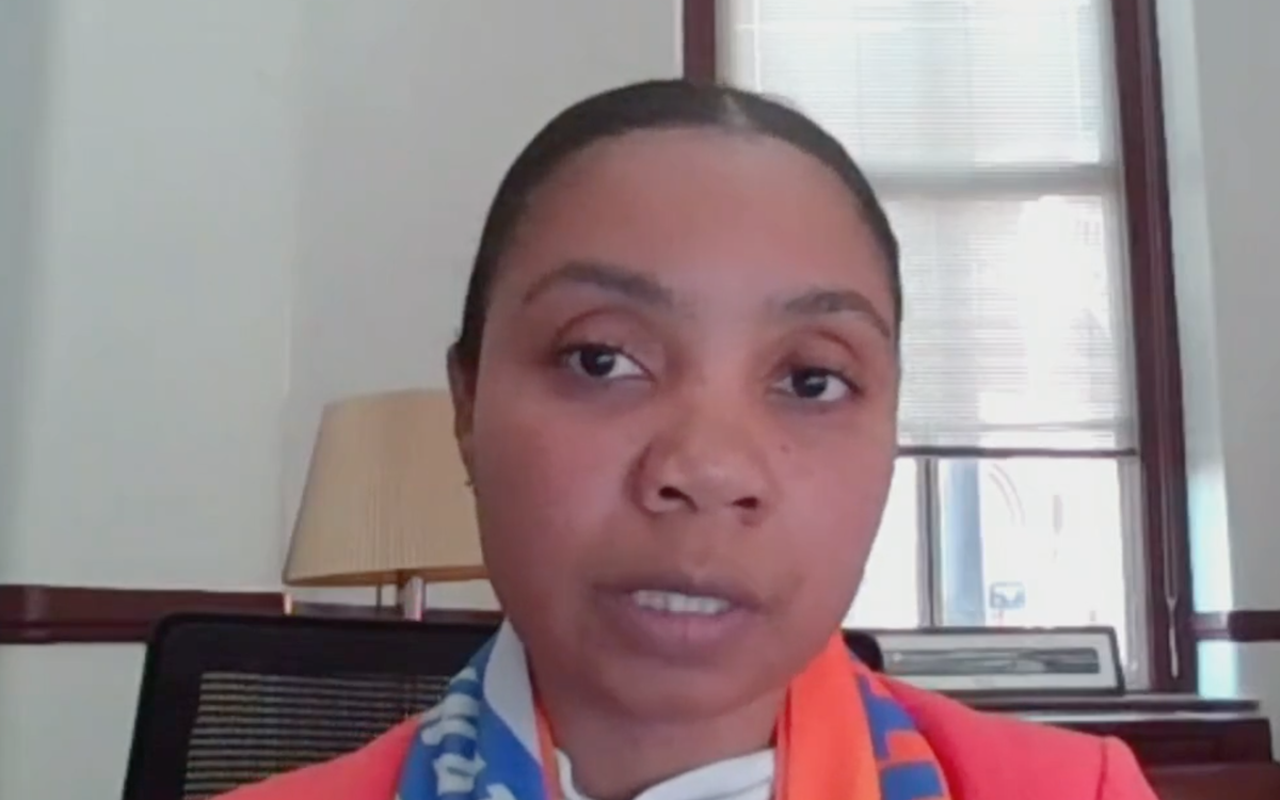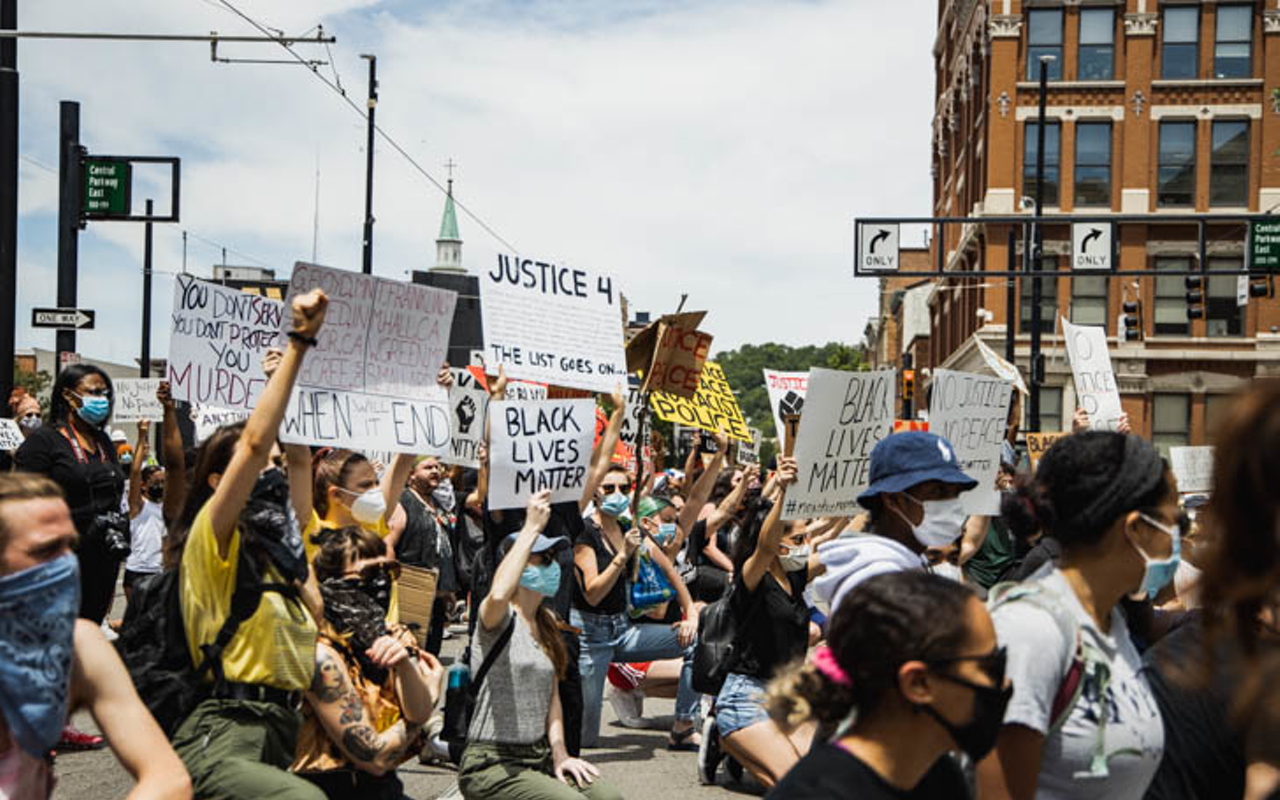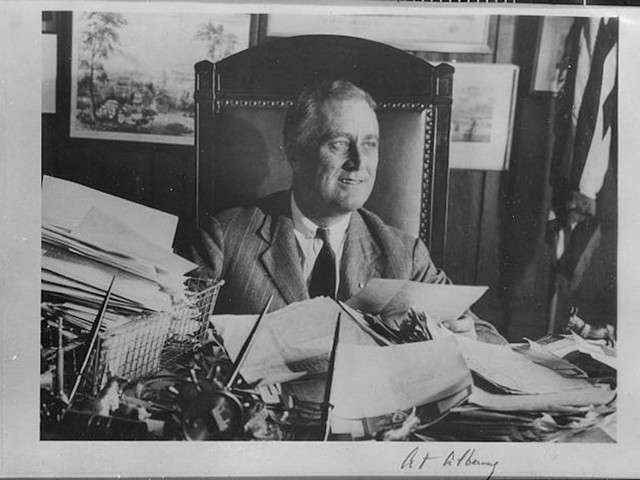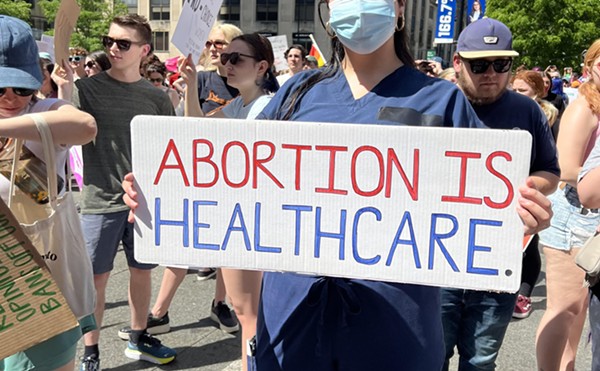This story is featured in CityBeat's Dec. 13 print edition.
One of the year’s most consequential elections has yet to take place in Cincinnati, and only roughly 1,600 people are registered to vote.
The Fraternal Order of Police Lodge #69 (FOP), the union representing current and retired Cincinnati police officers, will elect its next president on Dec. 18. The era of former CPD sergeant Dan Hils’ presidency could usher in a historic change of leadership in sergeant Deon Mack, 48. This is Mack’s second time running for FOP president, but, if Mack wins, he’ll be Cincinnati’s first ever Black FOP president.
Term-limited Hils has been elected by CPD officers to lead the union for eight years straight. He’s drawn controversy with his hawkish criticism of the Black Lives Matter movement and progressive watchdog programs like the Citizen’s Complaint Authority and the Black United Front.
CityBeat sat down with Mack to discuss what a post-Hils FOP would look like under his leadership.
CityBeat: Where did you grow up and how did you get into law enforcement?
Deon Mack: I was born and raised in Avondale, Cincinnati. I'm a product of Cincinnati Public Schools. I graduated from Withrow High School. I attended University of Cincinnati, where I hold bachelor’s degrees in criminal justice and psychology. I graduated from the University of Cincinnati, began my law enforcement career in the Hamilton County Prosecutor's office, and during my time there, I was the first victims advocate to be African American serving under Mike Allen in the prosecutor's office.
It became readily apparent very quickly the need for me to be across platforms from common pleas to municipal to juvenile because I was the only African American. By and large, many of our victims of crimes were African American. That process allowed me to really get a stronger grasp on how to be empathetic when dealing with people — how to understand and explain the process.
I transitioned from the prosecutor's office to the City Police Department in 2002. I broke into District 1. I was there for a very short period and the then-police chief Tom Streicher saw something in me and asked me to be a part of the Vortex Unit, which was credited with the change in Over-the-Rhine, getting Over-the-Rhine to be what it is today. That evolved into several other units; it went to Safe Streets and then it was a Gang Unit. I served there across those three units for approximately 18 years. Then I came back to [district patrol] where I was promoted to sergeant in District 3. I was promoted out of District 5 to go to District 3.
CB: How do you feel about the closure of District 5? Was it the right call?
Mack: District 5 hosts a real special place in my heart. I’m very, very upset about the closing of the district. Largely, because I thought it could have been done better.
CB: How so?
Mack: I thought we could have enquired a bit more with our [fellow officers], which would have given a better perspective on how best to serve the citizens of Cincinnati, and that wasn't done. Our [union members] offer a unique perspective that maybe even some of our city leaders may not have. And so I understand making decisions that are necessary for the department. I encourage that. However, I also encourage us utilizing the talents and resources that we have to really help drive those decisions. When you don't utilize the tools and talents, they tend to make decisions that are not as informed, because it's not your day to day.
CB: In July, nearly 100 FOP members voted to demand CPD keep District 5 after an officer was struck with his own baton and taser while responding to a call. Do you think the elimination of District 5 makes officers less safe?
Mack: Yeah, 100%. Not only that, I think the timing of the shift was not thought out as well, particularly because we're down, you know, several hundred officers right now.
CB: Why do you think recruitment and retention is down at CPD? How do you want to see that addressed?
Mack: We must rebrand ourselves. Law enforcement, by and large, has to go through a rebrand, you know? We are seeking qualified individuals, and to do that, we must look in a couple of different directions. We must not only look at some of our universities and colleges, you must also look at integrator programs that could be inclusive of even those who may not reach our 21-year age threshold.
I think it would aid us to have a bit more diversity in our ranks. Now, that doesn't take anything away from the strong men and women that we have currently working in our police department, because we have some excellent men and women who go out each and every day to protect lives.
CB: Historically, there hasn’t been a lot of collaboration between the FOP and the Sentinels, which serves as a voice for officers of color. What would that relationship look like if you were to be FOP president?
Mack: We would absolutely extend an olive branch. It's important that we all work on the same page. I can't say that we're always going to see eye to eye, there's going to be things that we differ on, I'm okay with that, but we must be willing to at least have the ability to sit down and have an equitable conversation.
CB: Dan Hils has not been known to prioritize positive relationship building with outside organizations. Do you think that’s been damaging over the past eight years?
Mack: I'll first start by saying this…Dan is a good guy, all right, I think sometimes his personal feelings may come into play. I think by and large, he's been a good person. However, his comments, yes, have been disparaging. That's one of the platforms that I run on, that we have a president who is willing to speak for us all, who is willing to have a well thought out, well organized statement when made to the community.
Furthermore, if you're going to be the president, you must look the part. We spend a ton of money as officers to be a part of this organization. You must have a president who is representing you, who is well spoken, who is well dressed and who understands [the union] not only from the policing side, not only the political side, but the business side of it as well.
CB: Last year saw several instances of officers saying the n-word on the job, with a mix of disciplinary outcomes. How do you view that year of revelations?
Mack: Certainly using disparaging rhetoric should not be tolerated from any of our members. I don't care what the nationality is. Now, I will say, yes, officers are under an enormous amount of stress. That doesn't excuse anyone for the use of certain language or certain derogatory comments.
However, we also have to look at the context. There were a few incidents that should have been argued and should have been vigorously defended to say, hey, yes, we know X happened. However, let's look at the reason why. I think once we understand the reasoning behind anything that was said, or any comment that's made or any action by our officers, then we better understand why it was done. And then that gives us a better perspective on how we go about disciplining things.
CB: Do you think the city’s zero tolerance policy allows for that level of nuance?
Mack: It allows very little, I believe. Again, we could have done a bit more research from a city's perspective on how we implemented [the rule] and what it absolutely looks like. When you speak of a really fine or really bold line, like if you crossed this line that’s it, I think that's a bit tough. We have to again go back to the understanding part, once we understand the whys, then we can answer the question on how we move forward.
CB: Dan Hils has been an unapologetic, outspoken critic of the Black Lives Matter movement, the Cincinnati Black United Front, the Citizen Complaint Authority. In a department where more than a quarter of officers are Black, why do you think Dan Hils was elected term after term for eight years?
Mack: We had a period of time where we had the highest of elected officials providing their opinion on things, and I think some of that was adopted.
That is why [it’s important to] have a president that’s going to give a well thought out statement, who’s not going to, just on a whim, give a comment and not think about the ramifications of those comments, how those comments are going to be received by the community and how those comments are going to impact our police officers.
CB: How do you view the Citizens Complaint Authority? How would you approach that relationship?
Mack: The FOP has not had the best relationship with the Citizens Complaint Authority, and that has a lot to do with both sides.
I think we can take a deeper dive into best practices for Citizens Complaint Authority, and how we can still accomplish the goal of its intended purpose for citizens to be able to have a place to complain about something. Let's face it, some complaints, a good majority of complaints, are complaints that we can merely look at body cam video and answer those questions. But to bring officers in, and to, in some cases, really kind of make them feel like they're the ones not telling the truth is tough. We have to take a deeper look at how we go about the investigations. Our equipment, in many cases, tells the story. So, to bring me in to berate me about a situation that may have happened nine months or a year ago, and I've dealt with 20,000 other situations since then, and then to say, what a bad job you did, it's unfair. Yeah, that's unfair.
CB: Would you say some officers are more involved in the union than others? Some demographics more than others?
Mack: I will say, one of the things I've attempted to get across to our younger members is this: We want you to be a part of this organization. In fact, we need you to be a part of this organization. And so how do we get you involved? Well, we have to meet you where you are.
CB: What does that look like?
Mack: We still operate in processes that are set in the 1900s. We're in the 21st century. It is time for us to meet our members where they are. Our meetings are set on a specific day at a specific time. Not always are our members – particularly our younger members who routinely are on second shift, or they work nights, because many of them don't have the tenure to get first shift – making it to the meetings.
So, what do we do? Well, we look at some of the advancements in technology that we have. We utilize those technological advancements to reach our officers, whether it be through virtual platforms, we've got to think outside the box.
CB: What sort of feedback are you hearing from officers about what they want to see from the FOP? From a new FOP president?
Mack: The one thing that I conveyed to them on a regular basis is that I will be committed to being the first president who listens, who seeks your feedback, who seeks your input on what things could be done to better our organization. And a few of the things that our members have come to me with center around our upcoming contract.
Many of our Suburban departments are offering raises in excess of 10%. It makes it very enticing for them to want to leave, and we must understand CPD has always been the pinnacle of law enforcement here locally, but we’re getting cherry picked.
CB: What would you say are the key differences between you and your opponent Ken Kober?
Mack: We were classmates, we came out of the same academy class. I have nothing ill of Ken to say. However, it is no secret that Ken has been a part of the organization there for some years. My question would be, what has changed? Because from my point of view, and from the view of the officers that I come in contact with that I supervise, that I talk to on a regular basis, they don’t think very much has changed.
Again where we differ, I’m a strong, outspoken, big presence, and I’m not afraid to have these tough conversations, but also the president must be able to leverage relationships. Networking, they must leverage their network. These are important. We have to leverage the relationships and leverage the networks that we have to get the things that we need. And yes, there's going to be a time for me to have to be tough in the media, to have to, you know, hold our leadership accountable. What I have to be is calculated in how I do it. Because if I'm not, then what I will do is what my grandmother used to say: I would cut the nose to spite the face
CB: You would be the first Black FOP president in Cincinnati. How does that feel?
Mack: I’d also be the third in the country.
It's an awesome responsibility, it's an honor. You know, I don't make much of being the first African American, it's not something I use on my platform. I don't, because I'm inclusive of everyone. I am as down the line as you get. And I'm not just partial to one side, I'm partial to all sides, because our members make up a variety of nationalities. They deserve a president who will be there and give the same respect to them, regardless of their color, regardless of their nationality, regardless of their agenda.
Subscribe to CityBeat newsletters.
Follow us: Apple News | Google News | NewsBreak | Reddit | Instagram | Facebook | Twitter | Or sign up for our RSS Feed

